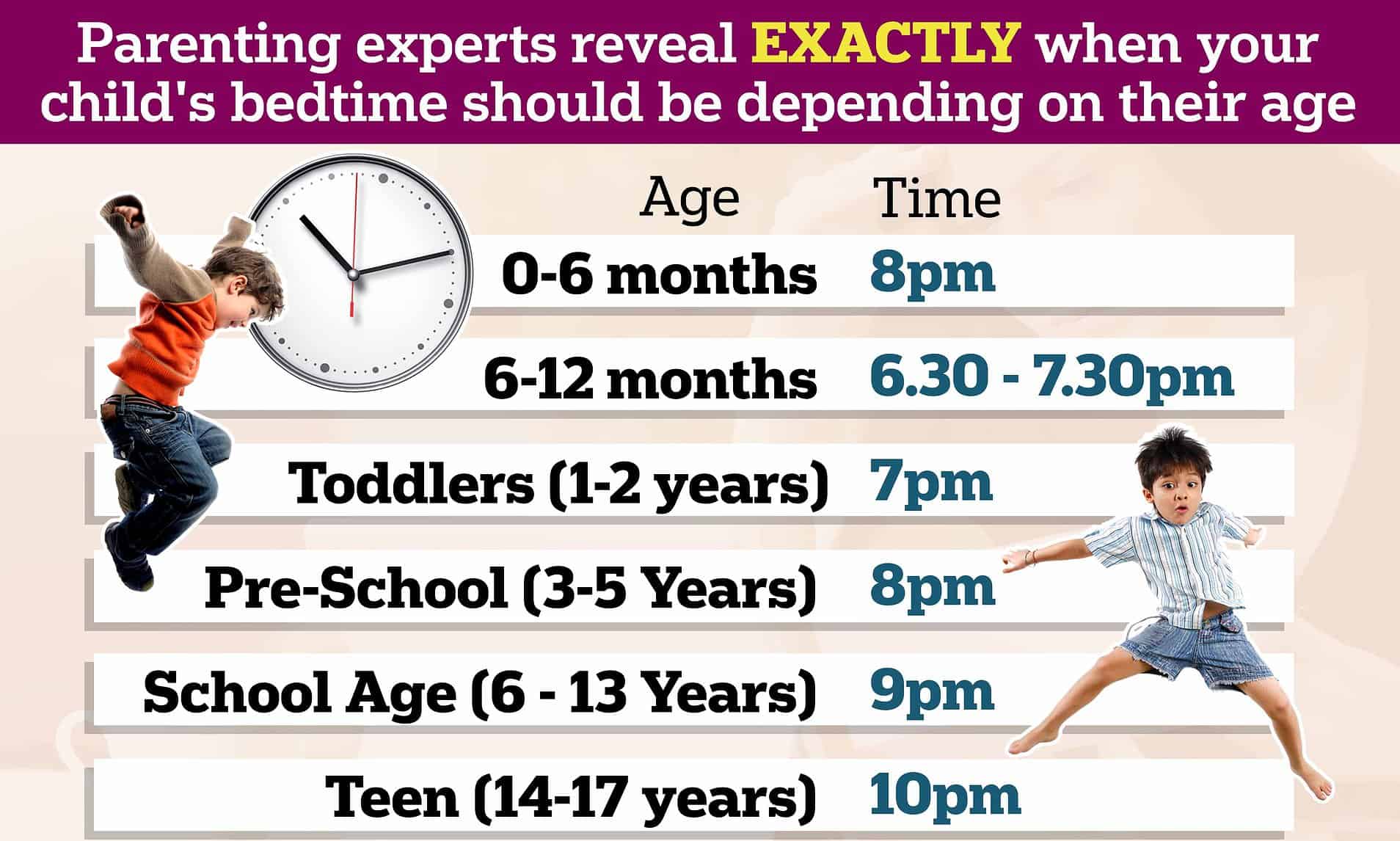The Magical ZZZs: Tailoring Bedtime to Age
Hello there, super parents! Are you navigating the tricky waters of setting a bedtime for your kids? Fear not, because we’re about to embark on a journey to the land of sweet dreams and restful nights! Determining the ideal bedtime can often seem like a puzzle, especially with kids’ ever-changing needs. But, worry no more! We’ve crafted the perfect guide to ensure your children get the sleep they need as they grow. So, grab your coziest blanket, a warm cup of milk (or tea for you, perhaps?), and let’s dive in!
Why Sleep is Super-Powerful for Kids
Before we explore the sandman’s schedule, let’s talk about why sleep is the real superhero in your child’s life. A good night’s sleep is crucial for your little one’s mental and physical health. It’s when they process new knowledge, support growth, and build immunity. In fact, studies have shown that children who consistently get enough sleep have improved attention, behavior, learning, memory, emotional regulation, quality of life, and mental and physical health. Who knew that closing those peepers could do so much?
Recommended Bedtime by Age: Infants to Teens
Now to the main event: When should your kids be hitting the hay? To keep things sweet and simple, we’ve broken it down by age groups. So, whether you have an infant or a teenager, we’ve got the bedtime lowdown.
Infants (4-12 months)
For the tiniest dreamers, sleep is a big part of life. Newborns typically sleep a lot, but not for long stretches. As they transition from newborns to infants, their sleep schedules begin to regulate. Sleep experts suggest that at this stage, infants require about 12 to 16 hours of sleep over a 24-hour period, including naps. Aiming for a bedtime between 6:00 PM to 7:30 PM works well for many families, ensuring babies get the rest they need and allowing parents some quiet time in the evening.
Toddlers (1-2 years)
Toddlers are balls of energy, and they use up every bit of it exploring and learning about the world around them. They still need a hefty amount of sleep—around 11 to 14 hours, including naps. By setting a bedtime between 7:00 PM to 8:00 PM, you’re making sure those little batteries get fully recharged for another day of adventures.
Preschoolers (3-5 years)
As children move into the preschool years, sleep continues to be a golden ticket to a successful day. Kids at this age typically need about 10 to 13 hours of sleep. Stick to a bedtime routine that starts winding down around 7:00 PM to 8:00 PM. This will help them welcome Mr. Sandman by 8:00 PM to 9:00 PM and ensure they’re bright-eyed for preschool.
School-Age Children (6-13 years)
The big-kid stage brings more schoolwork, activities, and peer relationships—all of which are exhausting and exciting. Continuing to prioritize sleep is vital which means 9 to 11 hours of catchin’ Zs every night. For this active bunch, a bedtime somewhere between 7:30 PM to 9:00 PM typically works wonders, balancing their need for sleep and their growing desire for independence.
Teenagers (14-17 years)
Teenage years are synonymous with change, and sleep patterns are no exception. With hormones, homework, and social lives, teens still need 8 to 10 hours of sleep; however, their internal clocks shift, making earlier bedtimes more challenging. An optimal lights-out range tends to be between 9:00 PM to 10:30 PM, acknowledging their shift in circadian rhythms while setting them up for success in school and life.
Remember, establishing and maintaining a sleep routine is just as important as the bedtime itself, and we’ll dive into routines, tips for ensuring your kiddos happily hop into bed, and troubleshooting common sleep struggles in the next thrilling section of our guide. So, stay tuned, sleep soldiers, and rest assured that mastering bedtime by age is within reach!
Age-by-Age Sleep Strategies and Bedtime Routines
Every child is unique and might need a little customization to their bedtime routine. Fear not, as we unravel some child whispering secrets in the next installment!
…to be continued as we unlock more about creating a sleep sanctuary and fostering sweet dreams for your kids.

5 Things Parents Should Know In Preparing for Recommended Bedtime by Age
1. Consistency Cements the Sleep Schedule
Consistent bedtimes and wake-up times are key to establishing healthy sleep patterns for children of all ages. This regularity helps set their internal clock, making it easier for them to fall asleep and wake up naturally. A structured routine signals to their body that it’s time to wind down, ensuring sleep comes quickly and lasts through the night.
2. Ready the Environment for Rest
Crafting a sleep-conducive environment is essential. Dim lights or use blackout curtains to signal that nighttime is for sleeping. Keep the temperature in the sleeping area cool and comfortable, as cooler environments promote better sleep. Also, make sure the sleeping space is quiet, or use a white noise machine to drown out disruptive sounds. Lastly, reserve the bed for sleep only, so your child associates it with rest.
3. Cultivate a Calming Bedtime Routine
A predictable bedtime routine calms the mind and primes the body for rest. Whether it’s a warm bath, reading a book together, or gentle stretches, find activities that your child finds relaxing. This routine should last around 30 minutes and should stay the same every night to be most effective. Avoiding screens and stimulating activities right before bed can also prevent disruptions in falling asleep.
4. Understand the Impact of Naps
Naps are important for younger children and should complement their nighttime sleep. However, timing is everything. Too late in the day, and naps can interfere with bedtime. For toddlers, early afternoon naps are best, while older children who still nap should do so before mid-afternoon to avoid pushing their bedtime later than desired.
5. Be Watchful of Sleep Needs Changes
As children grow, their need for sleep changes. Pay attention to signs of sleep deprivation or excessive sleepiness, as these can indicate it’s time to adjust bedtime. Monitor your child’s behavior during the day; if they’re having difficulties waking up or showing signs of tiredness, consider an earlier bedtime. It’s important to adapt to their evolving sleep needs naturally.
Introducing and adhering to an age-appropriate bedtime can be one of the most beneficial practices in a child’s daily routine. Be patient, as children adapt to new routines at their own pace and always stay attuned to their individual needs. Part of successful parenting is being both consistent and flexible, finding the balance that best supports your child’s growth and development. Happy dreaming!
See more great Things to Do with Kids in New Zealand here. For more information see here
Disclaimer
The articles available via our website provide general information only and we strongly urge readers to exercise caution and conduct their own thorough research and fact-checking. The information presented should not be taken as absolute truth, and, to the maximum extent permitted by law, we will not be held liable for any inaccuracies or errors in the content. It is essential for individuals to independently verify and validate the information before making any decisions or taking any actions based on the articles.




